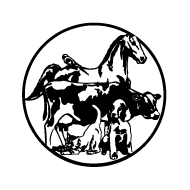Swill Feeding
Swill is food waste containing meat or any other mammalian products or by-products (apart from Australian milk by-products from a factory or milk processing premises licensed under the Dairy Industry Act 1992). Swill feeding is the feeding of such food waste to pigs.
In many countries, swill is used as a cheap source of food for pigs. However, swill feeding is a very dangerous practice, and is banned in Australia. Swill feeding has been shown to cause outbreaks of serious disease overseas.
Why is swill feeding dangerous?
Swill can contain viruses that cause diseases in animals. These viruses are often not destroyed by chilling, freezing, cooking or curing. Diseases that can be spread by feeding swill to pigs include foot and mouth disease, African swine fever, classical swine fever, Aujeszky's disease, swine vesicular disease, and transmissible gastroenteritis.
Australia is very fortunate to be free of these and other exotic diseases that could seriously affect our livestock industries and trade. Australia has strict quarantine laws that prevent the importation of animal products from countries where these diseases are known to be present.
Every year, large quantities of illegally imported animal products are seized by quarantine authorities. Some illegally imported animal products may pass undetected through this line of defence.
The banning of swill feeding provides a vital second line of defence because it prevents potentially infected foodstuffs coming into contact with susceptible animals. When exposed to the foot and mouth disease virus, pigs produce huge quantities of virus that very easily spread to other livestock species. The foot and mouth disease outbreak in the UK in 2001 is believed to have started because of feeding swill to pigs, causing losses of approximately $AUD 19 billion.
Feeding swill to pigs is the most likely way that Australian livestock may be exposed to an exotic disease agent. An exotic disease outbreak would severely affect the livestock industries and the Australian economy because of loss of valuable domestic and export markets and the cost of eradication.
Responsibility of food businesses, transporters and disposers of food wastes
Businesses that prepare and sell food (for example, restaurants, hotels, fast food outlets, hospitals, schools and other institutions) must not dispose of food waste in any way that would make it available for swill feeding. Likewise, those involved in handling, transporting and disposal of food waste must not dispose of food waste in any way that would make it available for swill feeding. If left-over fruit, vegetables or breads have been on the same plate as animal products or by-products, they cannot be fed to pigs.
Responsibility of livestock owners
Owners must not feed swill to pigs. This includes food scraps from the household and from food businesses. Although some people may think that swill is a cheap source of food, this is a dangerous practice that can put the livestock industries and the whole economy at risk.
Responsibility of the general public
Entry of exotic diseases into Australia could occur through the illegal import of prohibited animal products. Travellers should not bring animal products into the country. If in doubt, declare items to quarantine officers at the point of entry.
Penalty for swill feeding
There are strict laws concerning the collection, storage, treatment and disposal of food waste in Australia. Those convicted of feeding swill to pigs in Victoria can fined up to $6,000 under the Livestock Disease Control Act 1994. Similar penalties apply to a person who supplies swill to another person and is aware that it is being fed to pigs.
What can pigs be fed?
Pigs can be fed commercially prepared pig rations, grain, fruit and vegetable waste from markets, bread that does not contain any meat material (for example: bacon or ham) and milk by-products if they originate from a factory or milk processing premises licensed under the Dairy Industry Act 1992. It is not acceptable to feed vegetable, fruit or bread scraps that have been in contact with animal products or by-products.
Keeping exotic disease out of Australia is everyone's responsibility! How would you feel if you were responsible for introducing a disease like foot and mouth disease into Australia? Keep exotic diseases out of Australia. Do not feed swill.
For further information on swill feeding and exotic diseases, contact your local Animal Health Officer or District Veterinary Officer with the Department of Primary Industries.
Reviewed by Tom Glynn Farm Services Victoria. January 2010.
By Agriculture Victoria - Last updated 16 November 2012
